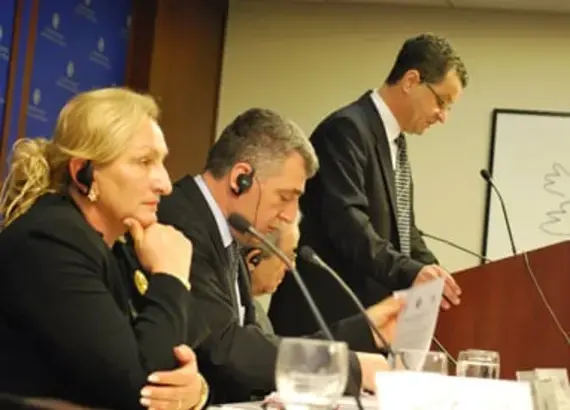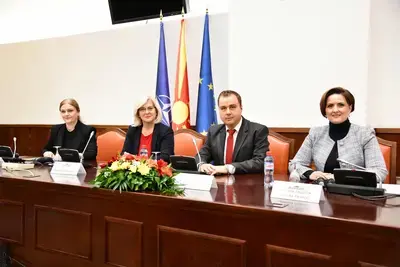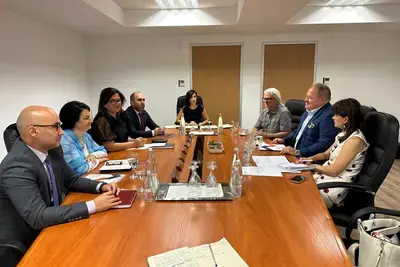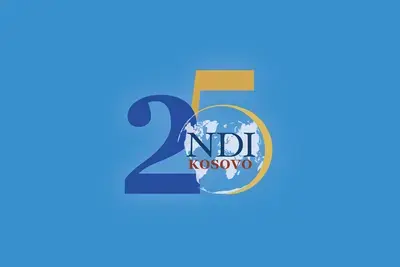
Success Story
In a Divided Bosnia, a Group of Politicians Sidesteps Gridlock to Cooperate on Reform
Bosnia and Herzegovina (BiH) is facing its worst political crisis since inter-ethnic war tore through the former Yugoslavia in the 1990s. Prolonged ethnic division among the country's three largest groups – Bosniaks (Muslims), Croats and Serbs – have prevented the formation of a government 10 months after general elections. Political and economic reforms needed to advance Bosnia’s bid to join the European Union have stalled.
Most political parties represent a specific ethnic group and hold widely differing views on how the state should be structured and governed. They publicly define their policy positions in opposition to other parties, making coalition-building among them thus far impossible.
In BiH’s two sub-regions, the Federation of Bosnia and Herzegovina and the Republika Srpska (RS), pressures to decentralize federal power are on the rise. Bosnian Serbs control RS political institutions, while the Bosniaks and Croats negotiate power sharing in the Federation. Croat parties continue to advocate for a separate, third entity to garner, in their view, adequate representation in government. Serb leaders would like more power to go to the governments of the sub-regions while Bosniaks favor a more centralized federal government.
In an atmosphere of ethnic exclusion and increasingly inflammatory rhetoric, eight prominent politicians, most serving as members of parliament – representing different parties, regions and ethnic groups – have come together with the goal of addressing some of Bosnia’s biggest challenges. In so doing they are demonstrating that political leaders can cooperate across ethnic and partisan lines through constructive public dialogue.
Since they met initially last year, during a week-long study mission to the United States organized by NDI and sponsored by the Institute for Representative Government (IRG), members of the group have convened three more times on their own initiative in Bosnia-Herzegovina. On their agenda have been contentious issues related to constitutional and electoral reform: open versus closed candidate lists, gender quotas and amending aspects of ballot counting procedures to increase transparency.
In these talks, the MPs have tackled ethnic tensions head on. Martin Raguž of the Croatian Democratic Union 1990 party (HDZ 1990), among others, discussed the need to remove discriminatory language in the constitution that was ruled illegal by the European Court of Human Rights in 2009. Under the current constitution, anyone who is not declared as a Bosniak, Croat or Serb is ineligible for any of the country’s three state presidency seats. This excludes minorities, such as Jews and Roma.
“In this period of crisis, I believe that this type of dialogue is a good signal that parties meet and communicate," Raguž said, referring to these regular group meetings.
The initiative taken by this group of politicians creates the possibility of more genuine policy discussion among parties and with the public. A democracy assessment that NDI conducted in BiH in 2009 identified the need for more animated political and civic discourse among citizens, who do not regularly engage with parties or elected officials, to bring more voices into the political process.
While in the U.S. last year, the politicians met with members of the U.S. Congress and the Maryland state legislature, which exposed them to both national and sub-national legislatures and the balance of powers within a federal system. The trip was funded by the Institute for Representative Government, a nonprofit, bipartisan, educational organization established by former members of Congress in 1988 to give parliamentarians from other countries the chance to exchange views and experiences with elected officials and civic leaders in the U.S.
The trip afforded the politicians a unique opportunity to establish ties with colleagues away from the heated rhetoric that dominates party politics in BiH. In their meetings in Washington, the MPs faced tough questions as to why there was little if any cross-ethnic, multipartisan dialogue on key reform issues. They realized that they could disprove this conventional view of zero-sum politics in BiH by demonstrating that they as a group of elected leader representing the country’s complex diversity could work together. One delegate described the bonds among them as his most important takeaway from the visit. While in Bosnia-Herzegovina, politicians do not naturally form relationships across party and ethnic divisions.
The common experience of a trip, away from their normal environment, gave the politicians an opportunity for sustained cross-party dialogue back home, and they have collectively decided to pursue it.
NDI has worked in Bosnia and Herzegovina since 1996 to support the long-term development of political parties, advance citizen participation in the political process, and foster professional and transparent legislative bodies. The goal of NDI’s current programs is to advance open policy development by parties and party outreach to engage citizens in policy dialogue.
Related:
Published August 4, 2011.



